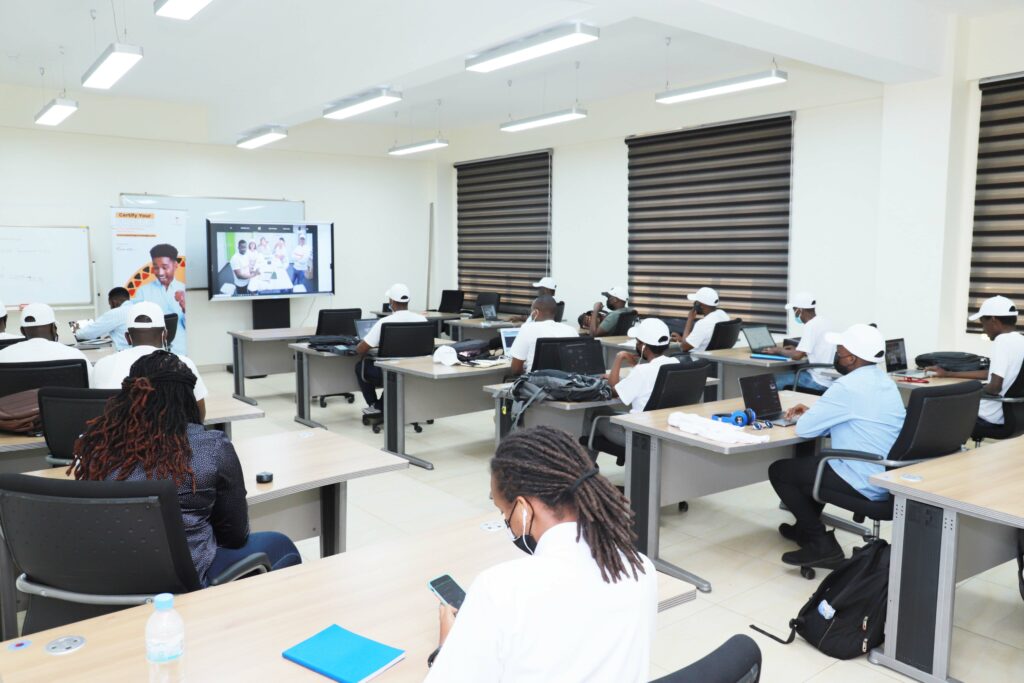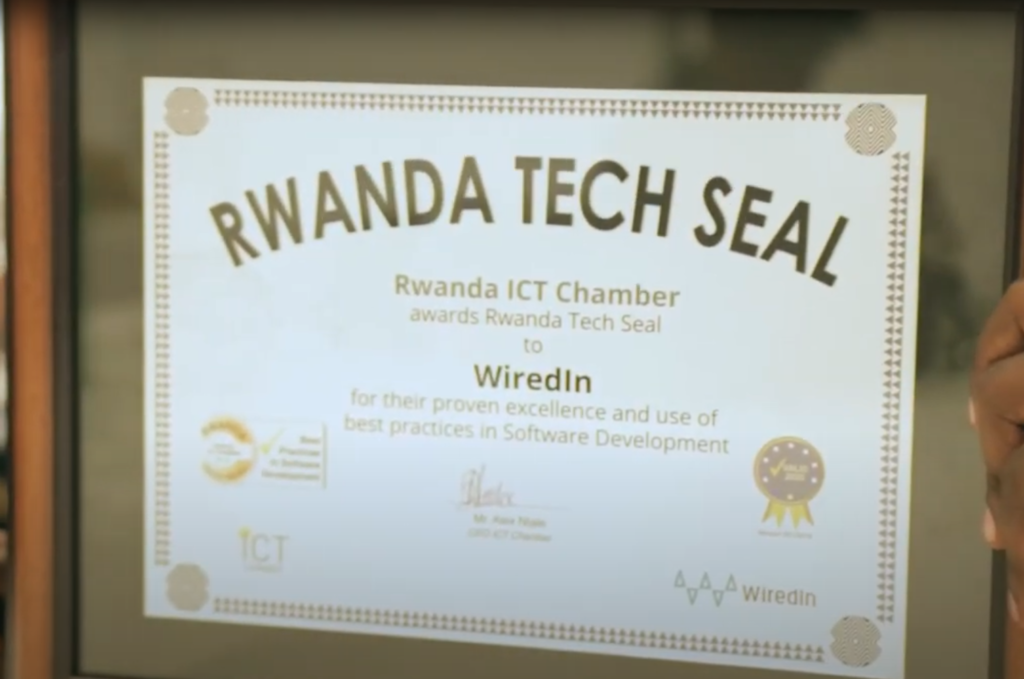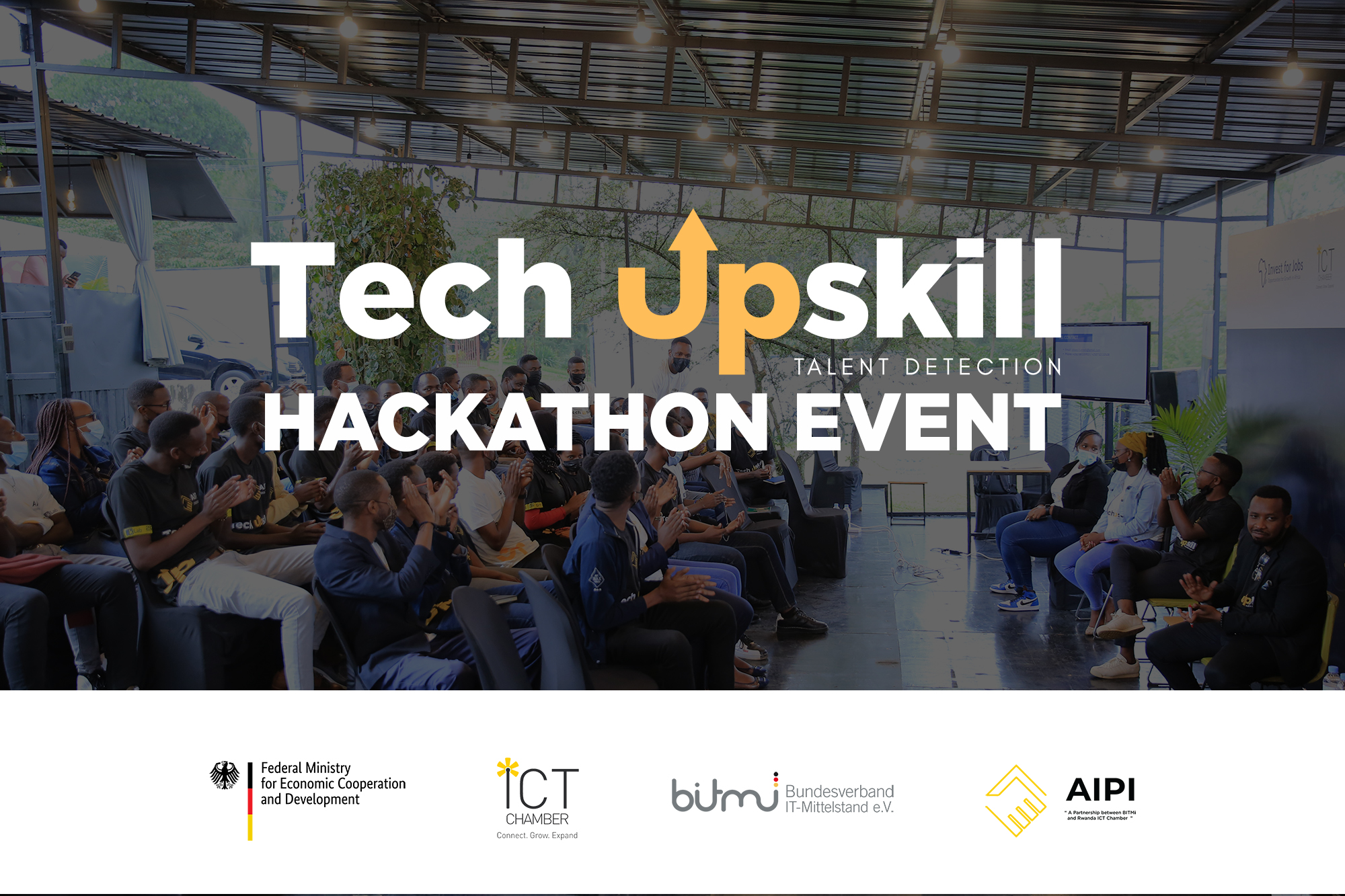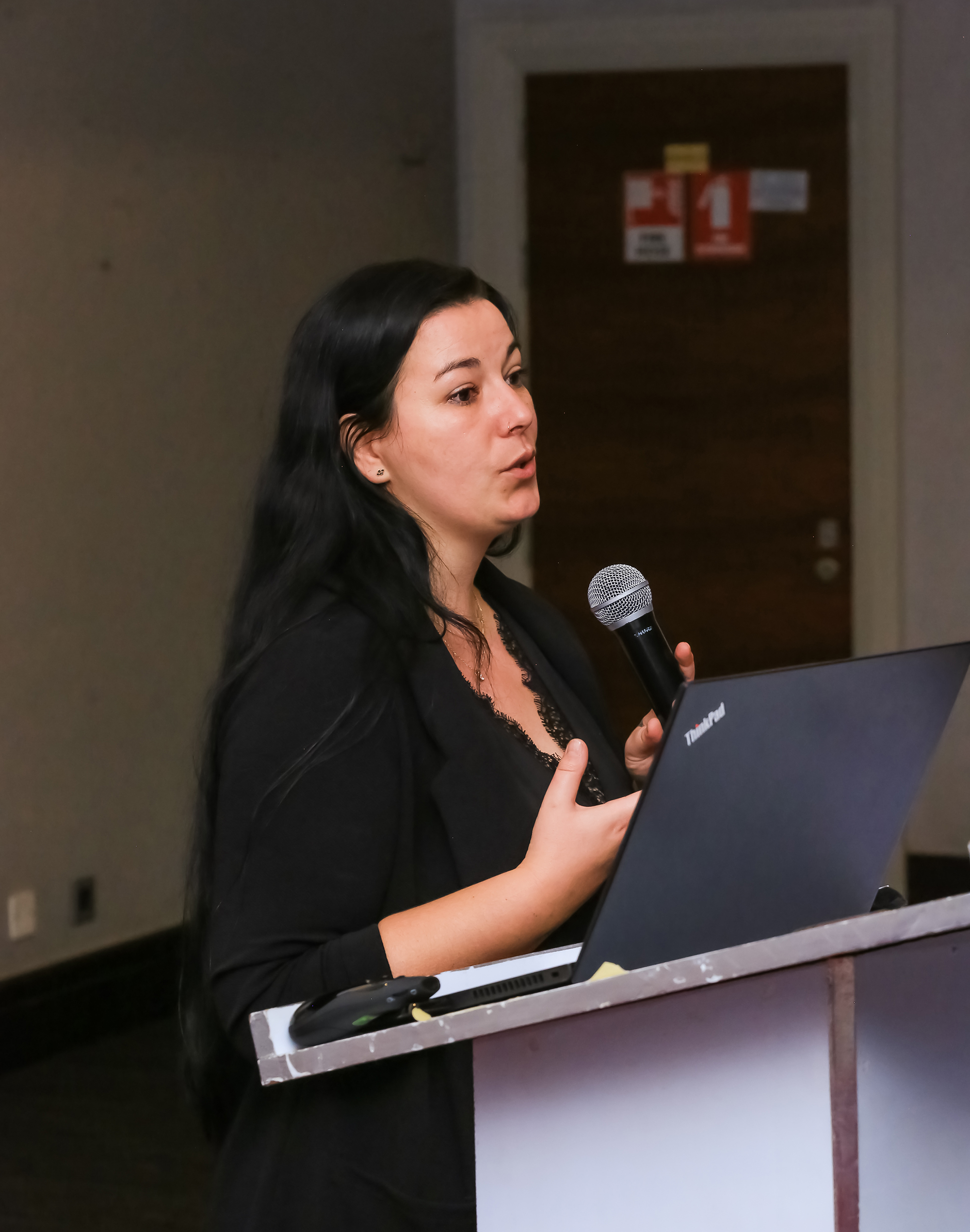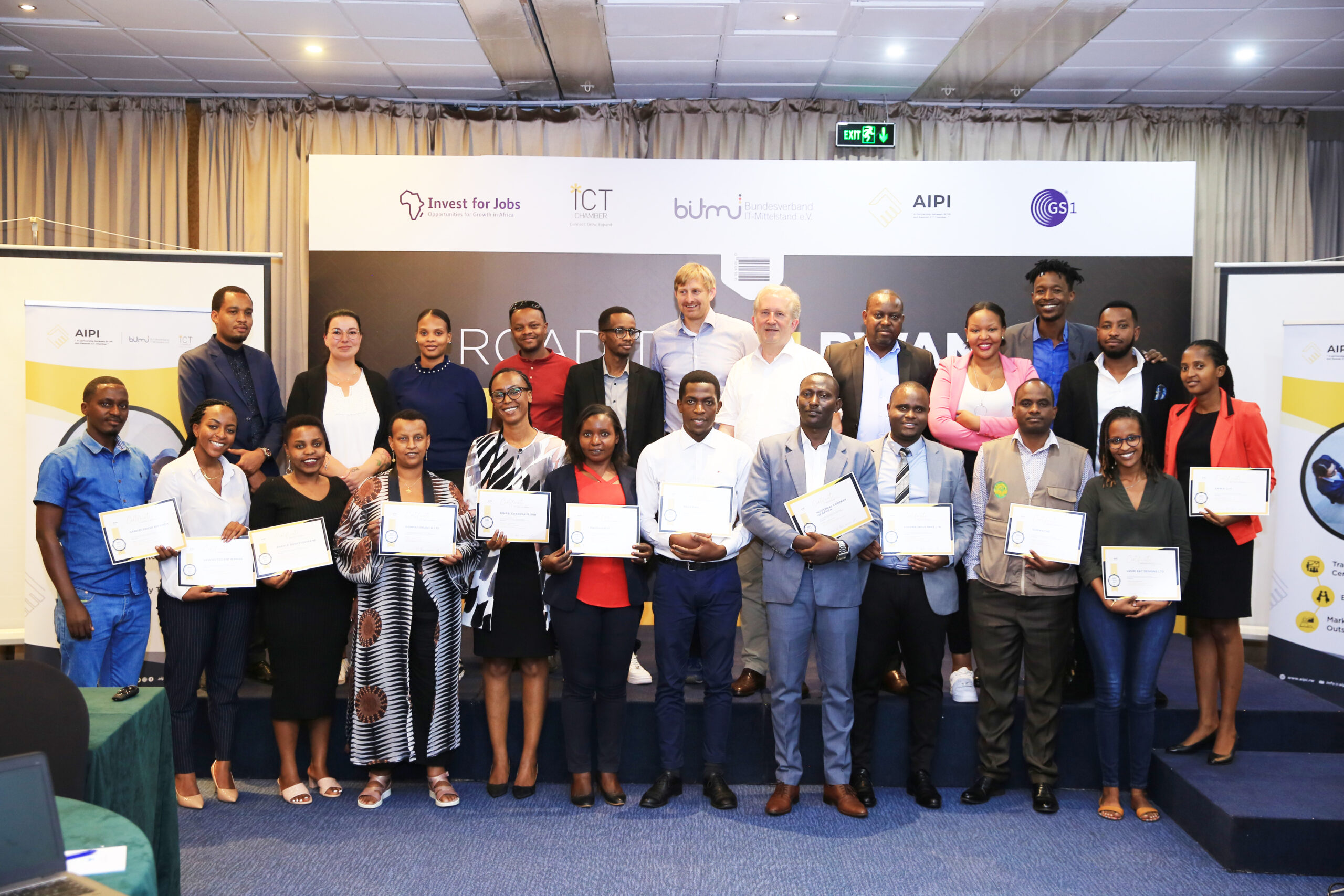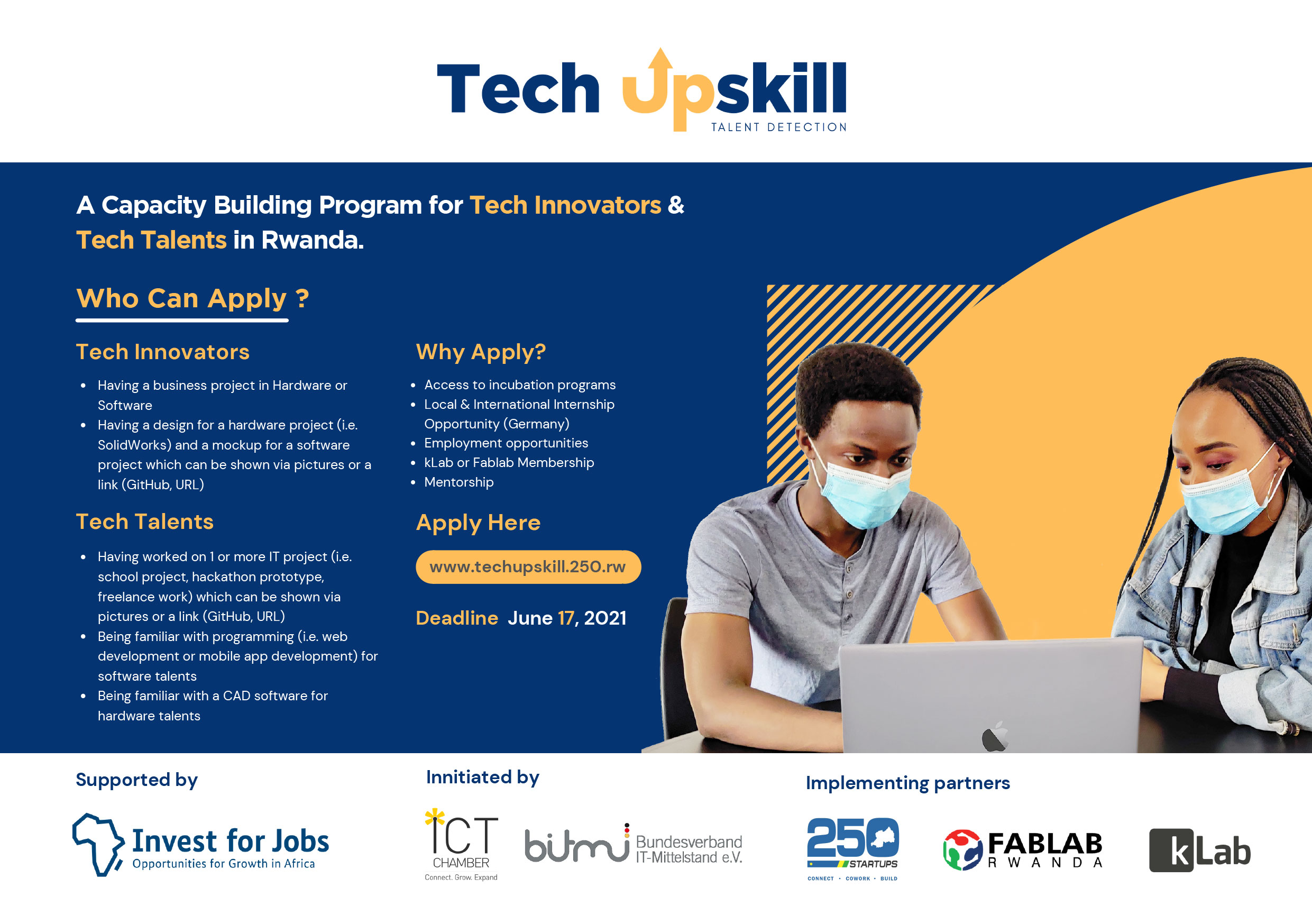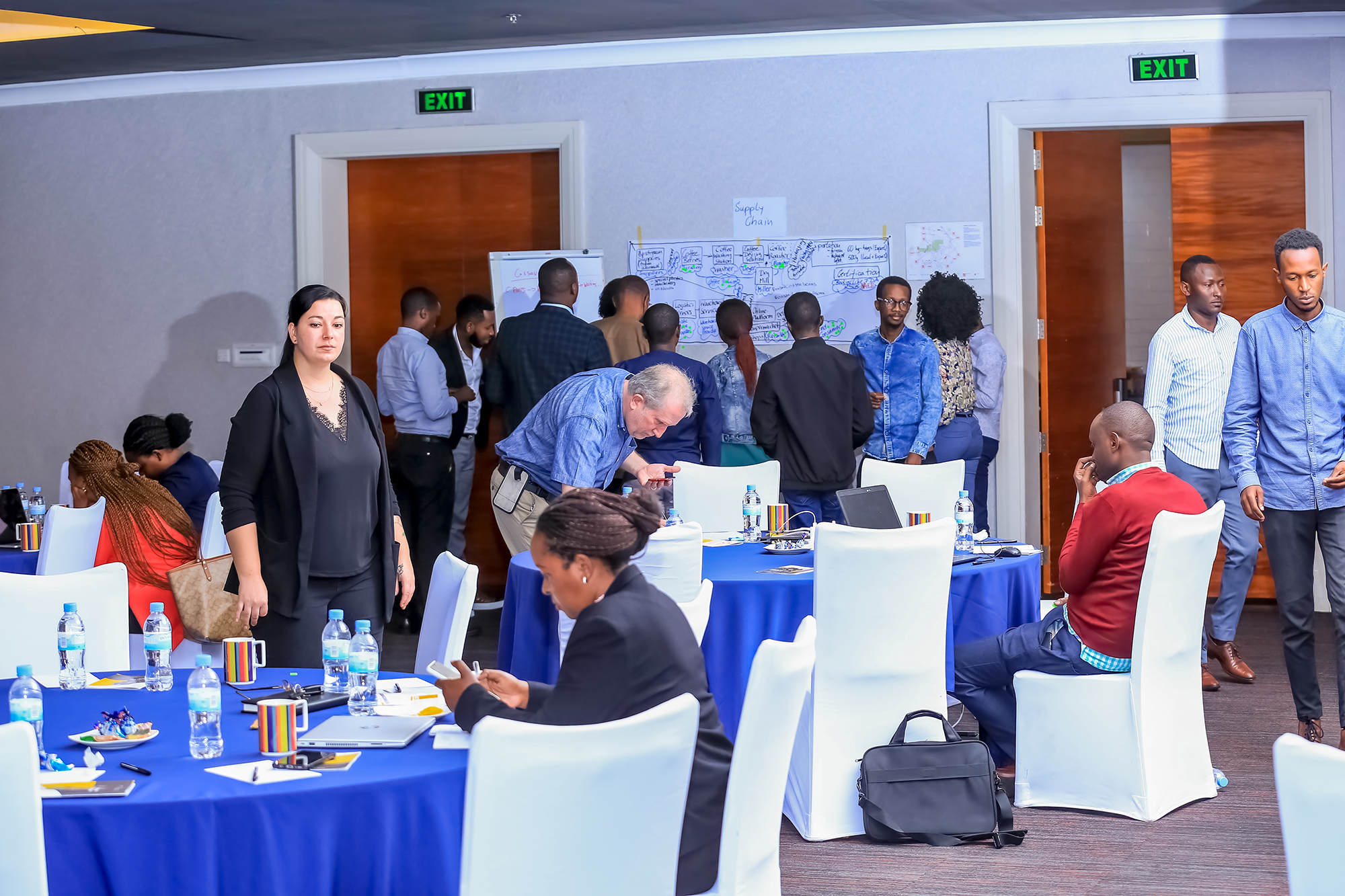
The Second Workshop
The AIPI team (Access International Partnership in IT) a project between Rwanda ICT Chamber and the German IT based Association Bundesverband IT-Mittelstand e.V. (BITMi) together with the experts from GS1 Germany have organized the second GS1 workshop which took place on March 24 and 25, 2022 at Park Inn by Radisson Kigali.
The first GS1 workshop in November 2021 was mainly about general knowledge on GS1 and technical aspects of GS1 standards while the second workshop was about building up the first task forces to now concretely start to establish GS1 Rwanda as a member organization of GS1 Global. Represented companies in the workshop included Inyange, Sorwathe, Magerwa, Pharmalab and SawaCiti.
Going forward, before we get into the details of the workshop, GS1 in brief explanation is the world’s largest distributor and developer of barcodes. Every bigger supermarket, large logistics company, and major pharmaceutical company uses GS1 standards. GS1 standards are the global language of business.
They provide control over one’s product along the entire value chain. Let’s take a piece of wood that will later be used in a building: GS1 standards provide an accurate view of the product for the producer, the logistics provider, the buyer, and even the on-site construction manager. The site manager can scan a code and see exactly where the product came from, which batch is being used, and even where in the building the wood will be installed.
This process is done through various standards or codes, starting with the GLN (Global Location Number), the GTIN (Global Trade Item Number), over the SSCC (Serial Shipping Container Codes) to the GSRN (Global Service Relation Number). For entrepreneurs in Rwanda, this is a great deal and means a lot, but most importantly visibility, control and profit. Visibility, because the GS1 code indicates the origin of the product. Control, because the product can still be tracked even on the shipping container. And profit, because GS1 standards are used by every major supermarket in the world. If a product has a GS1 code, it can easily be sold anywhere in the world.

On the first day, there was a short summary of the first workshop in November. After that, the focus was on the necessary steps for a successful application to GS1 Global. GS1 is a global organization with GS1 Global as an umbrella. If a country wants to become part of the GS1 Community, an association of companies must submit a joint application to GS1 Global. It is important that the application is derived from within the business community, not from government agencies or international donors. The AIPI project along with GS1 Germany Experts supports the establishment of GS1 Rwanda by organizing workshops, other events.

In the application and in the later member organization – in our case GS1 Rwanda – companies from manufacturers and retail must be represented. Preferably, companies from logistics as well. And the more companies are involved, the better. When applying, ideally 300 Rwandan companies should have expressed their support. This does not mean that these 300 must participate in all events, or help to shape the application. They just need to publicly show their support. To make this as easy as possible, there will be a website for this purpose soon.
Also important for the applications are flagship companies that actively work on the application and they will be the drivers of the initiative. So far, the following companies have become flagships:
- Pharmalab Industry
- Kinazi Cassava Plant
- Inyange Industries
- MAGERWA
- INCOA
- Aux Delices Honey
- BICT
- Abahizi Rwanda
- Sorwathe
- SawaCiti
We are happy to hear from more companies who would like to become Flagships. Get in touch via our contact
form
To submit a successful application, a clear demand in the country must be demonstrated. In the case of Rwanda, this is obvious: there are many good products and they should be distributed internationally.
But as many already know, GS1 Codes can be obtained even without owning a Member Organization. For example, with GS1 Kenya. So there is a need for more reasons to have an own GS1 organization. Possible reasons for Rwanda:
GS1 Rwanda will be a community of companies working together innovatively on economic problems and solutions, using and further developing GS1 solutions.
- GS1 Rwanda will become a GS1 training center for East Africa
- GS1 Rwanda will actively promote the empowerment of women in business.
- GS1 Rwanda will simplify logistics processes throughout the country to increase economic efficiency.
To achieve all this, you need to have a good business plan. But before that, you have to get to know your partners. For this purpose, we created personal maps on the first day to get to know the different sectors of the value chain from different perspectives.


After that, there was a workshop that focused on demand. For this, the Disney method was used: Imagine GS1 Rwanda from the perspective of a dreamer, a realist, a critic, and an outsider. The results from the different views were fascinating and helped planning for the future.

On the second day, working groups were formed to develop first drafts of the business plan and legal entity. In addition, the organizational structure of the future GS1 Rwanda was discussed. The result so far is that the organization will probably be an association, not a company. It is also clear that it will be not for profit, which is a requirement of GS1 Global. Any profit generated goes to the member companies or is used for the further development of standards for the benefit of the member companies. The board of GS1 Rwanda shall represent all relevant sectors: Manufacturers, Growers, Healthcare, Retail, Logistics, ICT.

Together with companies agreed to be flagships and to form the first task forces over the coming weeks. The next steps after these workshops are community breakfasts organized by AIPI in which the flagships and interested companies can get together to work out a business plan and a legal entity.
The third workshop will happen on September 28th and 29th, 2022, therefore the corresponding results will be presented and based on that, a draft for the application will be prepared. The common goal of this workshop is to send out the first version of the application to GS1 Global in early 2023 in order to get feedback in time.
So things are moving along at breakneck speed and with lots of enthusiasm on our Road to GS1 Rwanda. If you want to be involved, get in touch with us for more details and information regarding GS1 Rwanda Preparation, and for those of you who are already aware, spread the word!
Contacts us:
Email: info@aipi.rw
Phone number: 0781375971
Social Media (Instagram,Twitter,facebook and LinkedIn): aipi_ict_rwanda
To become a flagship company, fill the form

Car rides on a rural road that runs through the fields and forests









